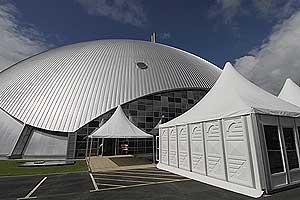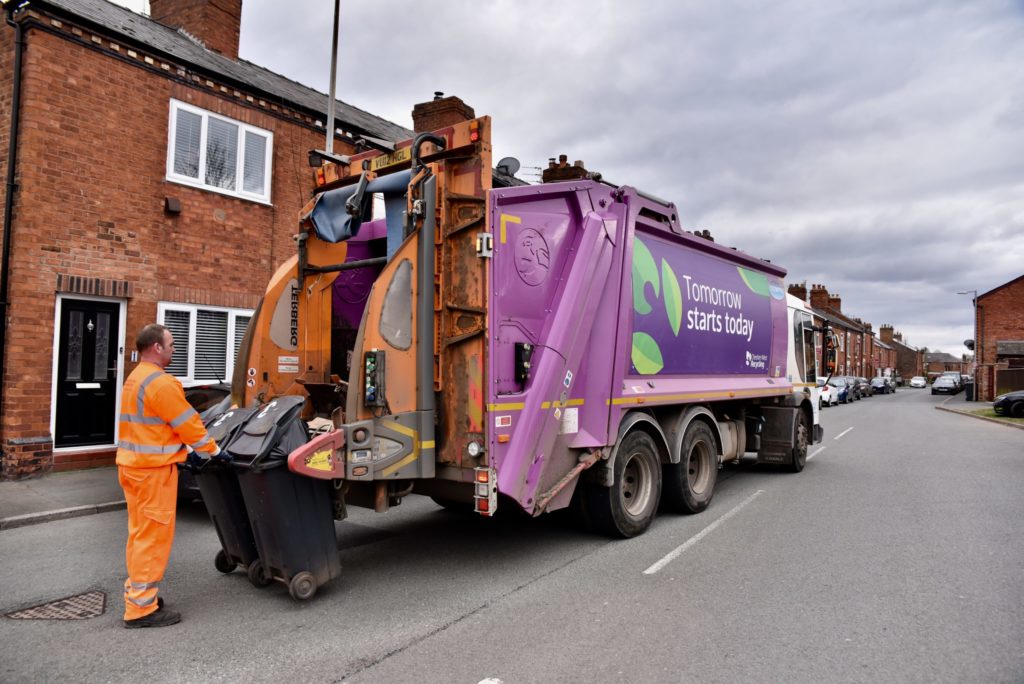He praises the work undertaken by Mr Ward over the last year and says he needs to carry on the work the out-going chairman has been doing and continue to build upon the relationships that have been developed between the ESA and other waste organisations and also work to keep the ESA as the representative for the sector.
He comments: “I need to pick up where Malcolm has left off and that means keeping the ESA as the recognised representative of the industry.”
Mr Goodfellow, aged 55, is expecting his role to be different this time round due to the varying challenges that are likely to be posed during his year in the job. Last time he was in the post, back in 2001, there was no recession to overcome and the recyclate markets were not recovering from a significant price crash.
At that time Mr Goodfellow, who lives in Newbury and enjoys country sports in his spare time, was faced with persuading the government to take waste seriously; this time around he needs the help the waste sector pick its way through the debris caused by the credit crunch and subsequent economic downturn.
Delays
He explains that the credit crunch has slowed down the procurement of much-needed waste and recycling infrastructure in the UK and part of his job will be to lobby the government to help speed up the process as much as possible in order to mitigate further delays.
Mr Goodfellow points out: “The current process is slow and not helped by the credit crunch which makes funding more challenging for everyone. But to take more than five years to advertise, procure and start building is just too long.”
Ironing out procurement issues and helping projects to get off the ground is a key aim for the ESA for the next year and Mr Goodfellow pledges to continue pushing the Government for change. He says: “We want to continue to lobby government and I think continue to promote change and a pragmatic approach to procurement. There has been progress but much needs to be done to add more real recycling and energy-from-waste (EfW).”
If the process is not smoothed out and streamlined soon Mr Goodfellow warns that the UK could miss waste and recycling targets. He is sure that some targets, particularly those for 2013, may not be met and says that everyone involved “needs to work a lot harder” to avoid failing to meet targets for 2020.
In addition to lobbying to improve the procurement process Mr Goodfellow says the ESA also needs to concentrate on commercial and industrial (C&I) waste and work to divert this material from landfill as much as possible.
The UK produces more than twice as much C&I waste as it does municipal waste and Mr Goodfellow says it is important to develop a treatment structure for the 68 million tonnes of C& I waste produced each year.
He explains: “With each increase in landfill tax and potential restriction on the use of landfill we will need to provide infrastructure and services for the commercial and industrial sector.”
Shanks itself already sees around 50% of its work coming from the commercial and industrial sectors and material from businesses makes up a large part of its operations in Belgium and the Netherlands.
EfW
The sector will also need to focus on building capacity for EfW facilities. Mr Goodfellow predicts that EfW will be an important treatment technology in the UK as the move away from landfill develops.
More larger-scale facilities can be expected, he says adding that the more traditional facilities will be followed by newer technologies. He explains: “We are seeing EfW and its various forms being the dominant technology for the foreseeable future. We are starting from a very low base so I am sure we will see a number of conventional facilities being built alongside anaerobic digestion plants as well as gasification, pyrolysis, plasma technology.”
He also predicts technologies such as mechanical biological treatment (MBT) and autoclaving facilities will become more prominent, particularly in urban areas where transportation of waste is more difficult.
However, he disagrees that lots of small waste facilities will spring-up in order to mitigate waste mileage simply due to the high cost of building waste facilities and the difficulties they face in getting of the ground. He comments: “Accepting or acknowledging the proximity principle is a fine ambition but if it comes down to costs therefore it is likely that larger facilities will usually meet that issue. There are also a number of other issues relating to sites including planning and public perception that will not help smaller, more localised sites get off the ground.”
Landfill
However Mr Goodfellow is keen to stress that there will always be a need for some landfill space in the UK. He points out: “There is always a place for landfill. If you look to the continent there is not a single country that does not use landfill but we will have to reduce our continued reliance upon it.”
The ESA is set to continue supporting the sector in helping to develop and waste infrastructure and ensuring policy takes the UK in the right direction. Key to this is ensuring all representatives of the industry speak with one singular voice. He says this is very important to secure the long term future for the sector.
Mr Goodfellow says he wants to see the ESA continue its close working relationship with the Chartered Institution of Wastes Management (CIWM) and build upon the success of Futuresource 2009.
And Mr Goodfellow is positive about the future of the sector. He has seen it change immeasurably since he first started out in the sales side of the industry more than 30 years ago and continues to be proud of what the sector is achieving. He adds: “There is the real and genuine belief that we are doing something to improve the quality of the environment and the fact that there is so much opportunity to develop as an individual and represent the ESA. You cannot fail to be inspired by the industry.”











Subscribe for free